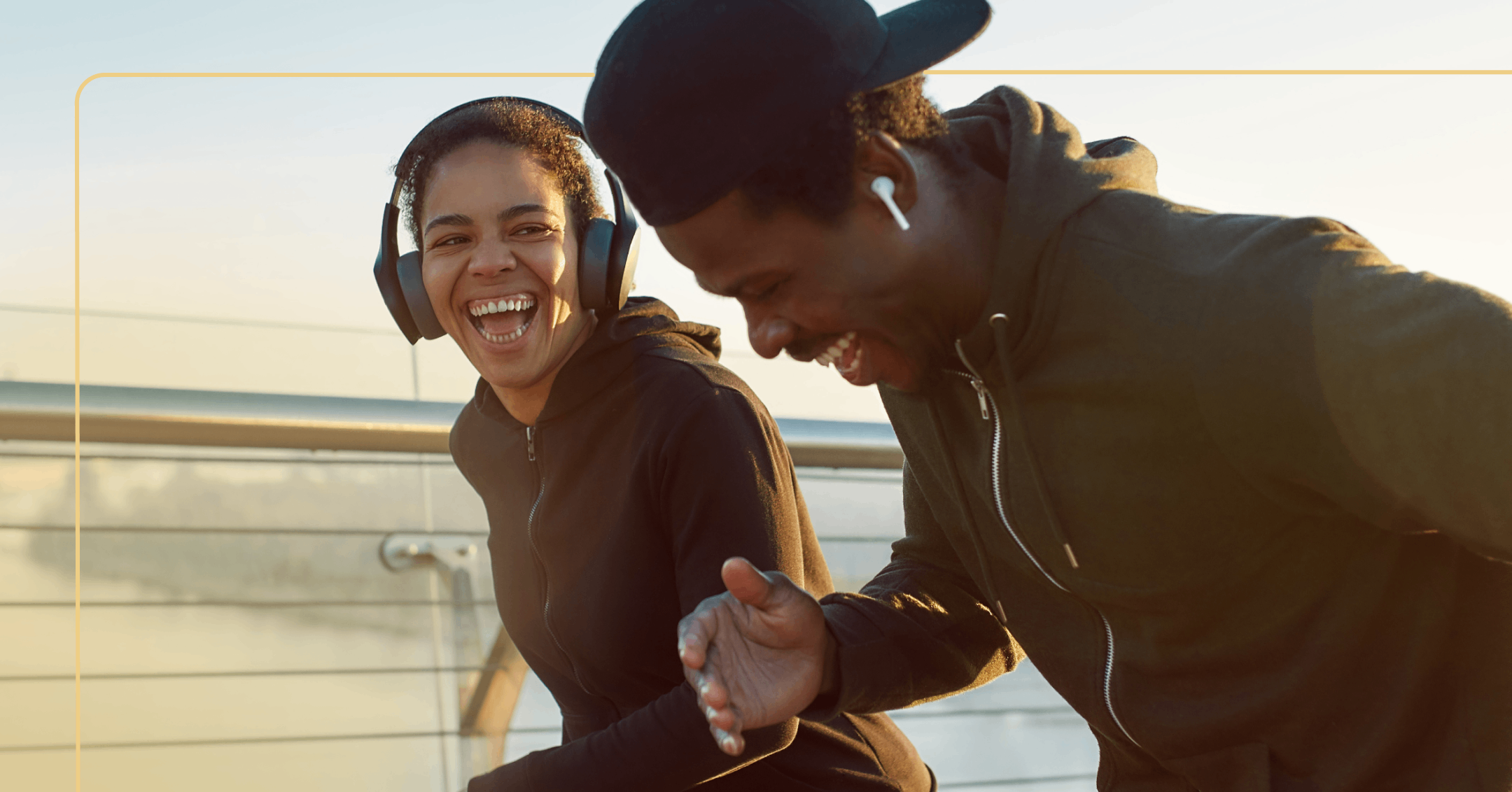Social anxiety is more than just shyness. It’s a mental health condition characterized by a significant fear of social situations.
Making new friends when you live with social anxiety can be challenging. You might find it easier to avoid social situations altogether — but this can make your symptoms worse.
Exposure therapy and other strategies can help reduce the symptoms of social anxiety, allowing you to build lasting and rewarding friendships.
Social anxiety disorder is more than just shyness or being an introvert. It’s a diagnosable mental health condition that can make social interactions feel completely overwhelming. Research shows that people with social anxiety face more interpersonal difficulties. But social anxiety is treatable, and you deserve a rich social life just like anybody else. You can learn how to make friends with social anxiety.
Building connections with others is an important part of overall well-being. Therapy and other strategies can help you feel more comfortable in social situations and foster friendship.
Why social anxiety makes friendship hard — but not impossible
Social anxiety disorder is a mental health condition that’s characterized by an intense fear of judgment or humiliation in social situations. It goes beyond feeling shy. People with social anxiety disorder often experience physical symptoms, like flushing or sweating, that worsen the fear of judgment.
Because of this intense fear, social anxiety can make friendship — especially new friendships — feel intimidating.
When trying to make friends with social anxiety, you might experience:
Fear of judgment: You might be so afraid of judgment that you don’t even try to meet new people. For example, many people with social anxiety fear that others will think they’re weird or awkward.
Avoidance: People with social anxiety disorder may avoid social situations altogether. It might just feel easier to give up on meeting new people. Unfortunately, avoidance can make social anxiety worse.
Overanalyzing: After every social situation, you might go over conversations again and again in your mind. You might overanalyze what exactly you said and how it may’ve been interpreted.
Uncertainty with starting relationships: Making new friendships often requires putting yourself out there, which can be scary for anyone, but especially if you live with social anxiety. You might find it difficult to initiate a relationship.
These are common challenges that people with social anxiety face, and this condition can make it harder to meet new people and develop friendships. But you deserve a rich social life with people who love you for who you are.
Social anxiety can be a barrier, but it’s still possible to make friendships. Not only can social anxiety disorder be treated, but you can also develop healthy friendships with social anxiety.
The care you need, when you need it
Learn how Rula can support your mental health journey
Navigating friendship when you have social anxiety
Even if you live with social anxiety, interpersonal relationships are still an important part of your overall mental health and well-being. And even though it might feel like the easier option, avoiding social interactions altogether can increase your risk of depression. Explore these tips to socialize in ways that might feel more comfortable for you.
1. Reduce the pressure
Don’t feel like you need to start making friends by going to a party where you don’t know anybody. It can help to start small in environments where you don’t necessarily need to interact with other people if you don’t feel comfortable doing so. For example, you might try talking on the phone with a friend or interacting with others in an online setting if in-person situations feel too overwhelming to start.
2. Choose structured activities
Clearly defined roles can help reduce social anxiety because you know exactly what’s expected of you. So, choosing to start with structured activities may be helpful. For example, you can join a book club or a class, where the agenda for each meeting is clearly defined and there’s limited spontaneous socializing. Or you might join a game night, where all of the socializing is structured around playing the game.
3. Try micro-socializing
It can be intimidating to enter a situation in which you already know beforehand that extensive socializing will be expected of you. For example, meeting a friend for coffee could feel scary because you know that you’ll be expected to sustain a conversation for a long period of time. This can increase feelings of social anxiety. Instead, try micro-socializing — spontaneous short bursts of socializing during your day.
For example, you might ask the cashier how their day is going or even just challenge yourself to make eye contact and say hello to someone you pass walking on the street. Any level of exposure, no matter how small, can make a difference.
4. Reward yourself for small steps
Avoid black-and-white thinking, like, “If I don’t have five new friends by the end of this year, I’ll never make friends.” Small steps, like saying hi to a stranger or sending a text to a colleague, can be impactful as well, and it can help to reward yourself for them. Rewards can be tangible, like getting yourself a sweet treat. Or you can affirm yourself for the progress you’ve made.
5. Practice conversation strategies — to an extent
Some people find it helpful to practice conversation strategies beforehand. For example, you might look in a mirror and practice your facial expressions and nonverbal body language, or you might think of a mental list of topics that you feel comfortable talking about.
But keep in mind that relying only on these strategies in social situations can become a safety behavior, which can keep you trapped in social anxiety. So make room for spontaneity as well.
6. Avoid safety behaviors
Safety behaviors are anything that you might rely on to escape the anxiety that social situations bring. For example, some common safety behaviors include using substances to calm yourself down, leaving events early, occupying yourself with snacks or an animal, or over-relying on rehearsed conversation topics. These behaviors can feel comforting, but they don’t give you a chance to confront your fears.
What to do if you feel like giving up
It can be challenging to make friends in general, and social anxiety can add another layer of complexity. Especially if you’ve already tried different strategies to make friends, it can be easy to start feeling hopeless. You might even start telling yourself that you don’t need friends at all.
But support networks are an important part of overall well-being. Research shows support networks have a positive impact on mental health, including improving stress management. Even if it feels hard, making friends is worth it.
If you’re feeling like it’s impossible to make friends, know that you’re not alone. Therapy can support you in overcoming social anxiety and making lasting friendships. A therapist can help you navigate difficult emotions and find ways to build connections that work for you and your unique situation. It’s a way for you to take control and create a life that you’ve chosen for yourself instead of accepting one dictated by your social anxiety.
The most effective treatment method for social anxiety is a type of cognitive behavioral therapy (CBT) called exposure therapy. A therapist can help you practice social interactions in a safe and supportive space while also helping you recognize and challenge unhelpful thinking patterns that may be worsening your anxiety. This can help acclimate you to the anxiety and, over time, make your fears less powerful.
Many people with social anxiety don’t realize that building friendships takes time, and small, consistent steps are just as important as big social interactions. Building friendships may feel daunting at first, but with each small step, you're creating opportunities for meaningful connections. You're not alone in this journey, and progress is possible.

Brandy Chalmers, LPC
Clinical reviewer
Find care with Rula
Social anxiety can make friendships — especially new friendships — feel scary. But you deserve to be surrounded by people who love and accept you as you are. Strategies, including exposure therapy or tactics like micro-socializing, can reduce symptoms of social anxiety and help you build rewarding friendships.
At Rula, we’re committed to delivering a comprehensive behavioral health experience that helps people feel seen and understood so they can get back to feeling their best.
Rula makes it easier to find a licensed therapist or psychiatric provider who accepts your insurance so you don’t have to choose between affordable care and excellent care. With a diverse network of more than 15,000 providers, 24/7 crisis support, and appointments available as soon as tomorrow, we’re here to help you make progress — wherever you are on your mental health journey.
Rula's editorial process
Rula's editorial team is on a mission to make science-backed mental health insights accessible and practical for every person seeking to better understand or improve mental wellness.
Members of Rula’s clinical leadership team and other expert providers contribute to all published content, offering guidance on themes and insights based on their firsthand experience in the field. Every piece of content is thoroughly reviewed by a clinician before publishing.




